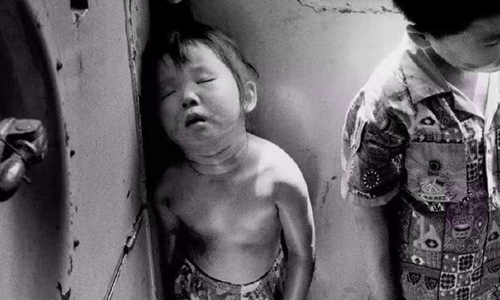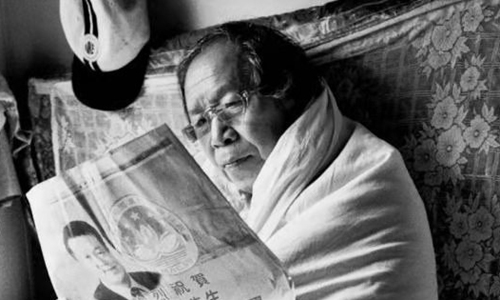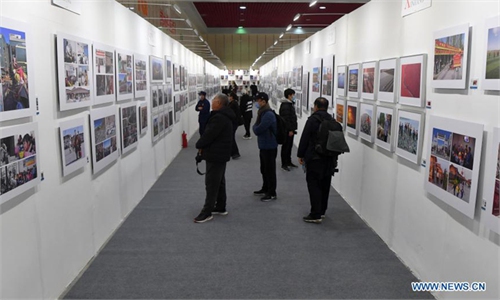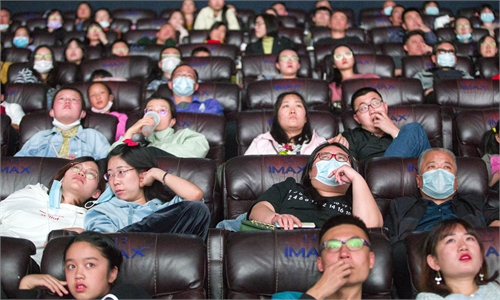ARTS / ART
China’s train-riding ‘story stealer’ Wang Fuchun dies at age 79

Wang Fuchun's image of a girl on train to Nanning in 1995. Photo: Weibo
Wang Fuchun, a Chinese documentary photographer who spent more than 40 years taking snapshots of people from different walks of life as they traveled by train, passed away on Saturday morning at the age of 79.
Wang once told media that he was a photographer who is "closest to people." A freelance photographer with a deep fondness for China's railways, Wang began capturing photos of train passengers in 1977.
Carrying his first borrowed Seagull camera back in the 1970s, Wang was quite a traveler himself, hopping on and off many old-fashioned Chinese "green trains" to spend time on almost all of the railway routes across the country.
The artist's rich experiences allowed him to rise to global acclaim with the photographic album One Billion Journeys. First published in 2001, the work included more than 40 intriguing images that captured the banal but rare moments of Wang's fellow travelers over 40 years.

Wang Fuchun's image of a couple on the train. Photo: Weibo
Calling himself as "professional stealer" of stories that happened on trains, Wang's One Billion Journeys album seems just like a drop in the ocean among his works, as he has taken more than 200,000 photographs over the years. These photos not only capture the microcosms that exist on trains, but also provide a window into larger Chinese society as they reveal the cultural and social changes that took place in China over the past 40 years of reform and opening-up.
Wang's images also reveal the modernized developments of the country from its traditional "green trains" in the 1980s and 1990s to today's railway facilities that make use of advanced technology with improved speed and safety.
"Trains, and people on trains represent a concentrated image of our society. His works are powerful because his focus was real, and his lens was close. These works are meaningful because they are massive and detailed thus capable of exhibiting the life choices of people, such as where they choose to go to. Such information paints a bigger picture of the country, such as urbanization," He Guiyan, a Chinese art critic who has reflected on the artistic and social value of Wang's photographic works, told the Global Times on Sunday.
"As the one who holds the camera, reality can be strong, raw and in your face. At that moment, photographers can add interpretations and attitudes to the truth by how they use angles, colors and lenses… Wang has many black and white photos, but such works show love, warmth, people's innocence, and feel like he was not an outsider but one of them," said Li, a Chinese documentary photographer who focuses on the lives of people suffering mental illnesses in Chongqing, told the Global Times on Sunday.
"She was all covered in mud, standing and leaning on the train door sleeping. My nose grew sore and couldn't press the flash button for five to six minutes… I blamed myself and felt bitter," said Wang in an interview with media describing a photo he took in 1995 of a 5-year-girl on a train to Nanning, South China's Guangxi Zhuang Autonomous Region.

Wang Fuchun's image of a old man reading newspaper on train. Photo: Weibo



